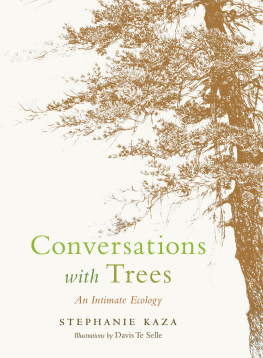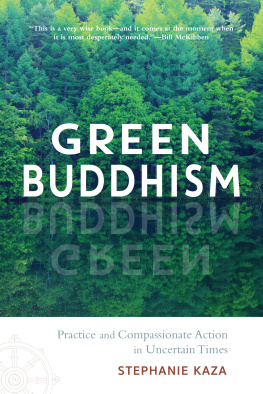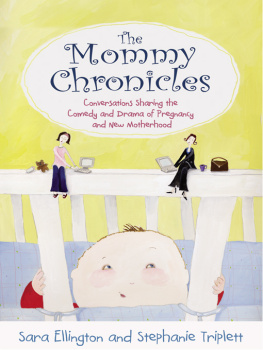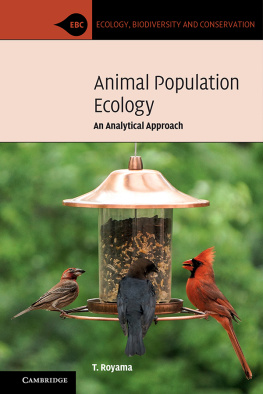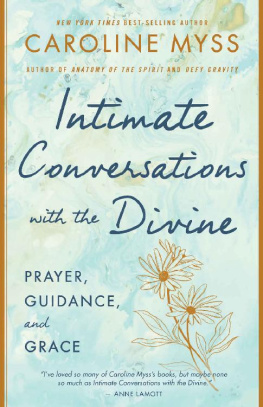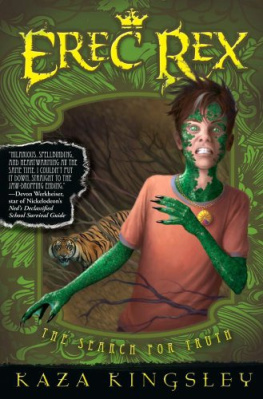Stephanie Kaza - Conversations with trees : an intimate ecology
Here you can read online Stephanie Kaza - Conversations with trees : an intimate ecology full text of the book (entire story) in english for free. Download pdf and epub, get meaning, cover and reviews about this ebook. year: 2019, genre: Home and family. Description of the work, (preface) as well as reviews are available. Best literature library LitArk.com created for fans of good reading and offers a wide selection of genres:
Romance novel
Science fiction
Adventure
Detective
Science
History
Home and family
Prose
Art
Politics
Computer
Non-fiction
Religion
Business
Children
Humor
Choose a favorite category and find really read worthwhile books. Enjoy immersion in the world of imagination, feel the emotions of the characters or learn something new for yourself, make an fascinating discovery.
- Book:Conversations with trees : an intimate ecology
- Author:
- Genre:
- Year:2019
- Rating:5 / 5
- Favourites:Add to favourites
- Your mark:
- 100
- 1
- 2
- 3
- 4
- 5
Conversations with trees : an intimate ecology: summary, description and annotation
We offer to read an annotation, description, summary or preface (depends on what the author of the book "Conversations with trees : an intimate ecology" wrote himself). If you haven't found the necessary information about the book — write in the comments, we will try to find it.
Conversations with trees : an intimate ecology — read online for free the complete book (whole text) full work
Below is the text of the book, divided by pages. System saving the place of the last page read, allows you to conveniently read the book "Conversations with trees : an intimate ecology" online for free, without having to search again every time where you left off. Put a bookmark, and you can go to the page where you finished reading at any time.
Font size:
Interval:
Bookmark:
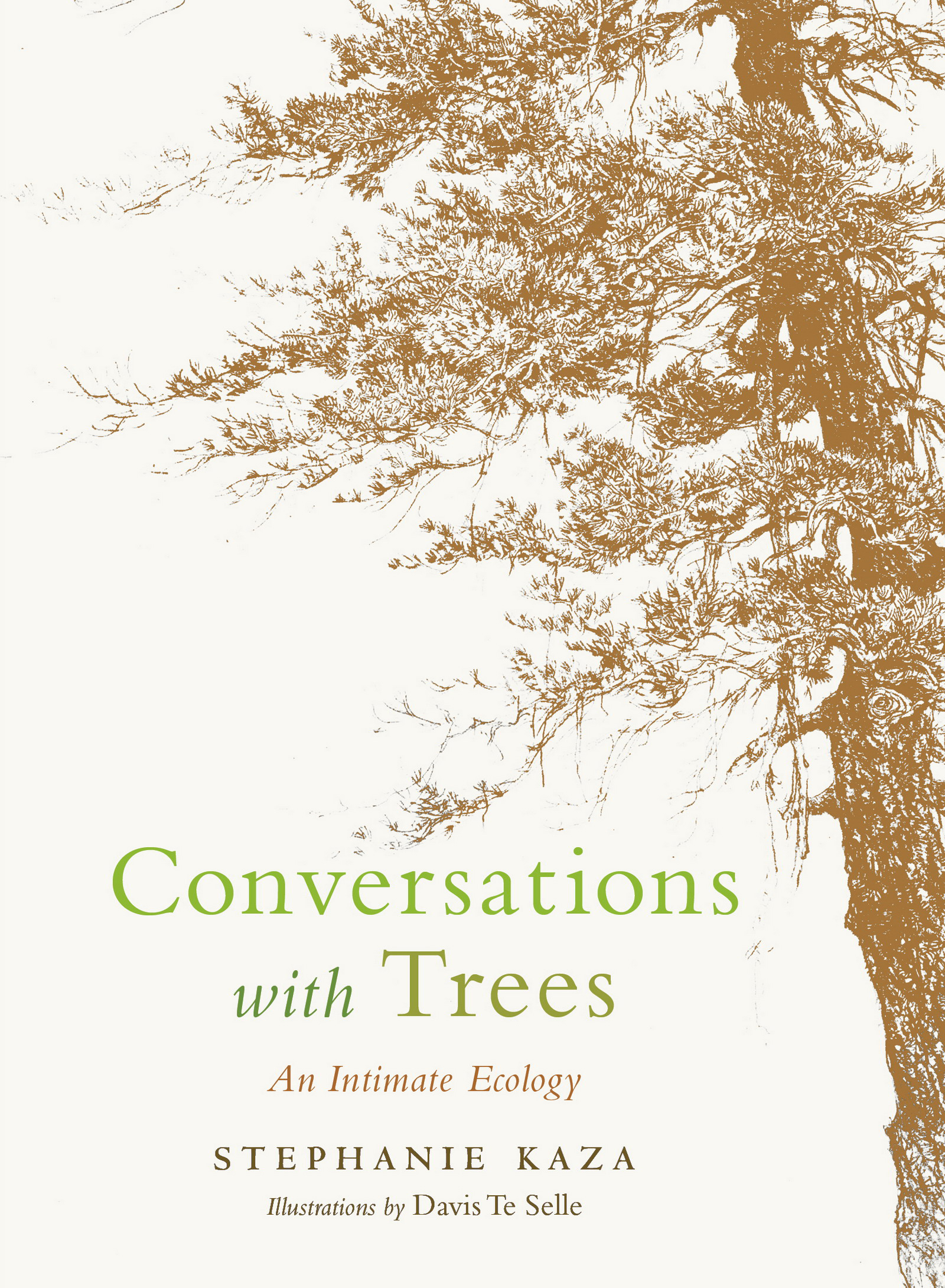
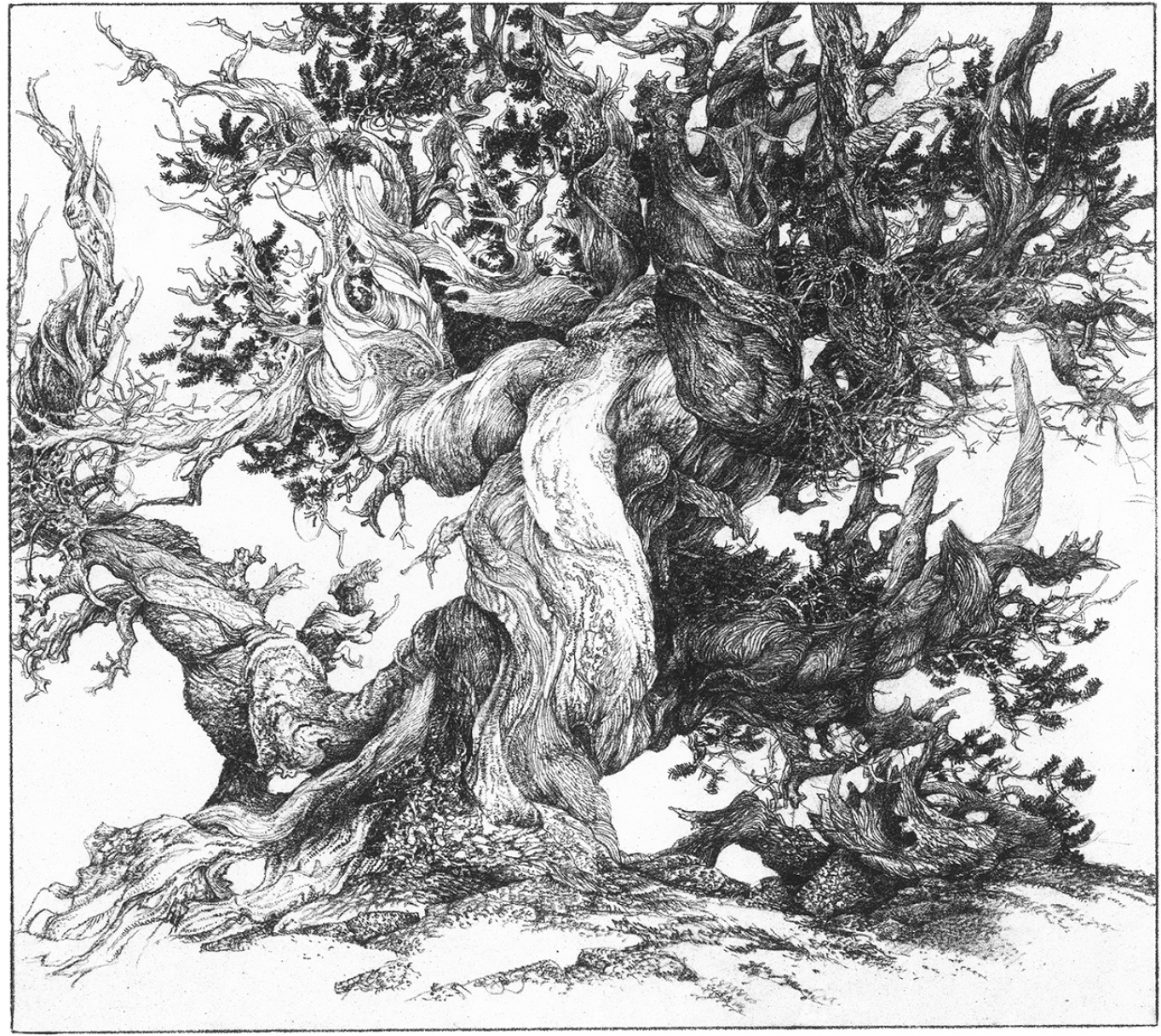
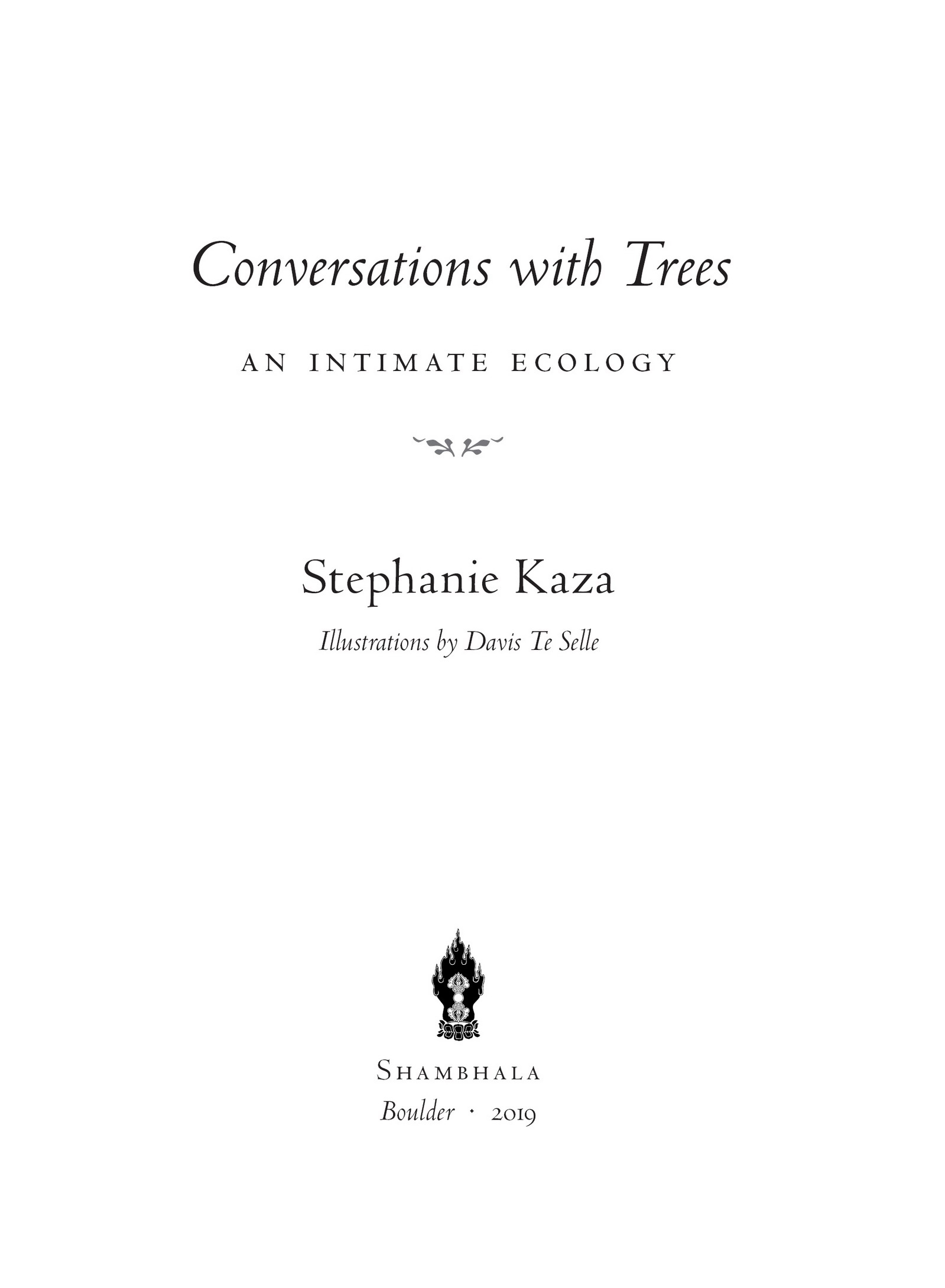
Shambhala Publications, Inc.
4720 Walnut Street
Boulder, Colorado 80301
www.shambhala.com
1993 by Stephanie Kaza
Preface 2019 by Stephanie Kaza
Illustrations 1993 by Davis Te Selle
First published in 1993 as The Attentive Heart.
All rights reserved.
No part of this book may be reproduced in any form or by any means, electronic or mechanical, including photocopying, recording, or by any information storage and retrieval system, without permission in writing from the publisher.
Ebook design adapted from printed book design by Steve Dyer
Cover art by Davis Te Selle
L IBRARY OF C ONGRESS C ATALOGING - IN -P UBLICATION D ATA
Names: Kaza, Stephanie, author.
Title: Conversations with trees: an intimate ecology/Stephanie Kaza; illustrations by Davis Te Selle. Other titles: Attentive heart Description: Boulder: Shambhala, 2019. | Originally published: New York: Fawcett Columbine, 1993. | Includes bibliographical references.
Identifiers: LCCN 2018050410 | ISBN 9781611806779
eISBN9780834842007
Subjects: LCSH : Trees. | TreesReligious aspectsZen Buddhism. | TreesSocial aspects. | TreesPacific States.
Classification: LCC QK 477. K 37 2018 | DDC 582.16dc23
LC record available at https://lccn.loc.gov/2018050410
v5.4
a
D EDICATED TO THE TREES
May they continue to thrive and flourish on this earth, filling our hearts with joy and inspiration.
I N THE EARLY 1990S , WHEN I FIRST WROTE THESE essays, I was pulled by a powerful call from the trees to listen, to hear their stories, to be in their presence. I didnt know where that call would take me, but I trusted my intuition to follow. I was led to many ancient and grand beings who offered unforgettable experiences of communion. I also had to face difficult questions and troubling concerns that arose in the company of trees. Since that time, a number of the trees I wrote about have perished in dramatic but completely natural ways. The Grand Dragon Oak lost a major trunk and crashed in pieces into the canyon below. The big madrones companion tan oak at Cloud Mountain dropped its crown in a fierce storm and collapsed to disease and weathering. The Monterey pines at Muir Beach suffered attacks by pine bark beetles, and many had to be removed as neighborhood hazards. Most recently, the unusually large manzanitas at Pepperwood Ranch went up in a hellfire of flame during the Tubbs fire of 2018.
These individual stories reflect changing conditions for trees and forests throughout the west coast of North America. In the last few decades, droughts have become more severe and drawn out, snapping even sturdy trees under water stress. Forest fires are burning hotter and more erratically, jumping canyons and fire lines faster than they can be contained. Bark beetle infestations in the Sierra Nevada have claimed the lives of millions of ponderosa, lodgepole, Jeffrey, and sugar pines, turning mountainsides into ghost lands. Urban forests in such iconic tree cities as Portland, Oregon, are losing ground to rapid development, creating heat islands from reduced shade. All of these impacts are tied to climate change and the steady warming of the planet. It is true that forests have changed radically under earlier periods of climate change. But todays levels of greenhouse gases are the highest in forest history, and this round of climate change may prove to be shocking beyond our predictions.
In the midst of all this, it is heartening that so much more is known now about the hidden life of trees. There are more books and blogs on trees, more memoirs and novels, more nature writing and personal reflection, and thus more readers engaged with tree stories. The reports of tree communication via symbiotic fungi and complex root networks have given scientific support to something many people have sensed for a long time: Trees talk to each other! They share information about soil and weather conditions; they alert each other to beetle attacks. They function as communities more than as individuals. All this seems astonishing, but only because it breaks through our mainstream view of trees as objects for human use.
Since the first edition of these tree stories was published, I spent twenty-four years teaching at the University of Vermont as a professor of environmental studies. There I developed my scholarship and writing on Buddhist environmental thought and further engaged the natural world from a contemplative perspective. Though I learned the East Coast trees and delighted in the maple and hemlock forests of Vermont, I often longed for my West Coast trees, with whom I felt so much more at home. When it came time to complete my university service, I again felt the powerful call from the trees. We headed west to settle in Portland, Oregon, among the towering Douglas firs of Cascadia. Now my bookshelves are lined with field guides of the Pacific Northwest, and I am learning how volcanic action, glaciation, ice age floods, fire, and climate have shaped these landscapes. I am back with my tree tribes and deeply grateful for their company once again.
And not a moment too soon, it seems. With climate change accelerating and national politics precarious, the future of the planet is at stake in a frightening way. Global warming has forced feedback systems in soils and forests into overdrive, and pollution from atmospheric carbon continues to rise. As forest cover shrinks due to agriculture, timber cutting, and urban development, forest species are disappearing all over the world. All the best efforts in conservation biology and ecological restoration have not kept up with the economic and social pressures on the forests. Many people speak of a dark despair, sensing the planet is under unacceptable levels of assault. Not only forests are suffering, but we too, as human populations, are meeting great suffering from disease, toxins, overheating, lack of water, and conflicts over resources.
In this context, what can a book such as this offer in todays world? How can a book make a difference against the relentless destructive forces that seem to be taking the planet into a dark time? I see this writing as a call for reflection, for clear seeing, an invitation to intimacy. Being with trees is a return to soul, an offering of refuge. These essays provide a place to recover from the sense of anguish and discouragement that comes in waves and erodes resilience. In my own investigations with trees, I seek a deeper truth of relationship, of reunion; I am looking for a better future for human-tree relations. I know it is possible. I am not alone in my seeking.
The themes in this book are still vital and important today: the role of stories and storytelling, the place of trees as wisdom keepers, the confrontation with the killing mind. It still makes sense to go on pilgrimage to trees with open hands and heart. I still carry my questions to trees, and I want to knowBristlecone pines, how are you enduring? Fire-scarred bays, how will you recover? Beetle-eaten whitebarks, what will it take for you to survive? There are so many stories to be uncoveredof loss and destruction, of tree planting and recovery, of communities falling in love with their trees. When I first shared these tree stories in public, many people came up to share their own tree stories with me, looking for affirmation that they were not crazy for what they had experienced, for what they knew in their bodies and hearts. Now, twenty-five years later, the times are so much more receptive to tree stories. This is a really good thing; we need all the tree stories and tree friends we can find. These wisdom keepers have quite a lot still left to share with us newcomers on the planet.
Font size:
Interval:
Bookmark:
Similar books «Conversations with trees : an intimate ecology»
Look at similar books to Conversations with trees : an intimate ecology. We have selected literature similar in name and meaning in the hope of providing readers with more options to find new, interesting, not yet read works.
Discussion, reviews of the book Conversations with trees : an intimate ecology and just readers' own opinions. Leave your comments, write what you think about the work, its meaning or the main characters. Specify what exactly you liked and what you didn't like, and why you think so.

